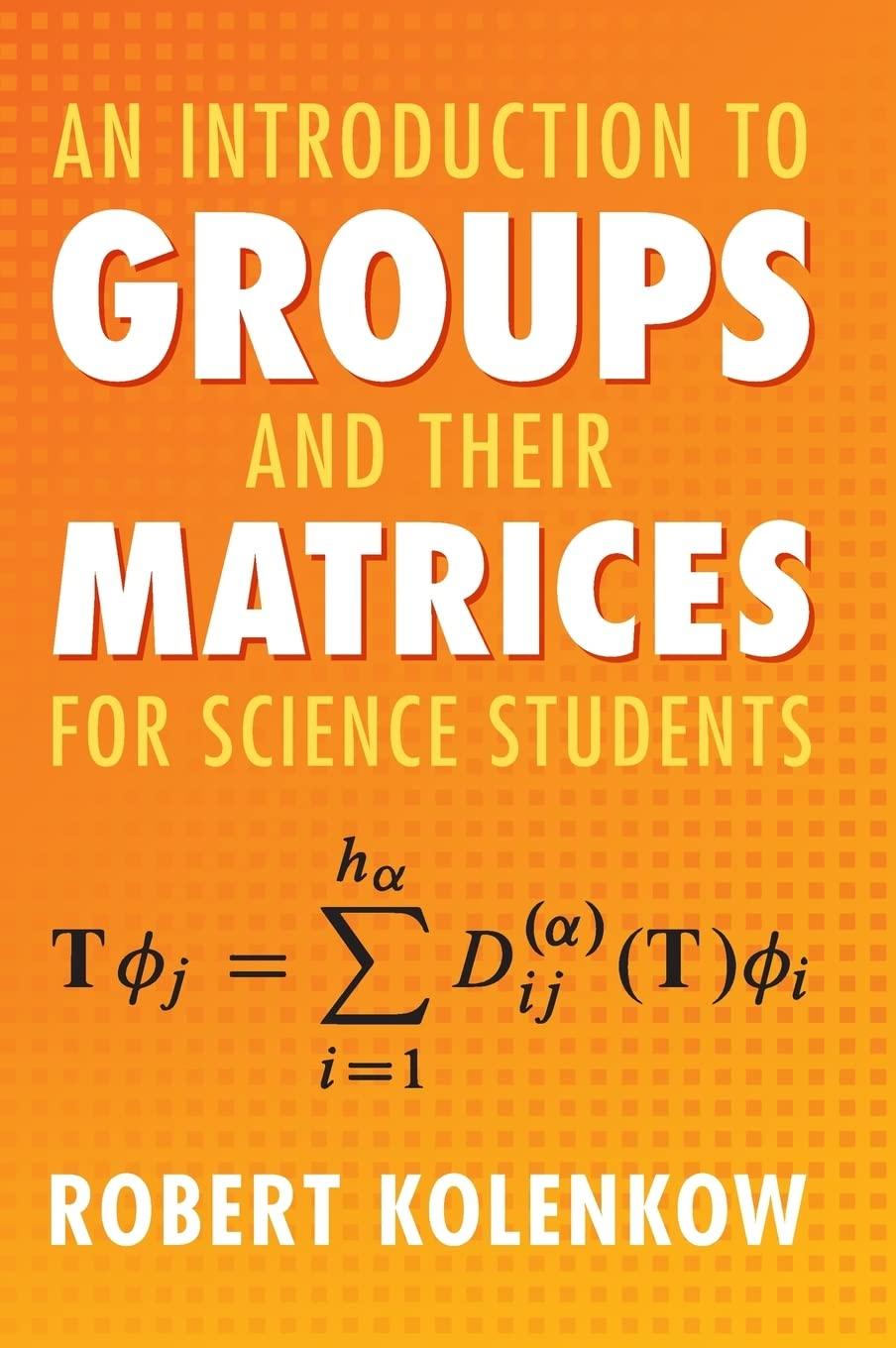Consider an operator (mathbf{U}=e^{i theta mathbf{G}}) with generator (mathbf{G}). If (mathbf{U}) commutes with a Hamiltonian (mathbf{H}), use
Question:
Consider an operator \(\mathbf{U}=e^{i \theta \mathbf{G}}\) with generator \(\mathbf{G}\). If \(\mathbf{U}\) commutes with a Hamiltonian \(\mathbf{H}\), use the first-order method to show that \(\mathbf{G}\) also commutes with \(\mathbf{H}\). What does this imply about \(\mathbf{G}\) ?
Fantastic news! We've Found the answer you've been seeking!
Step by Step Answer:
Related Book For 

An Introduction To Groups And Their Matrices For Science Students
ISBN: 9781108831086
1st Edition
Authors: Robert Kolenkow
Question Posted:





